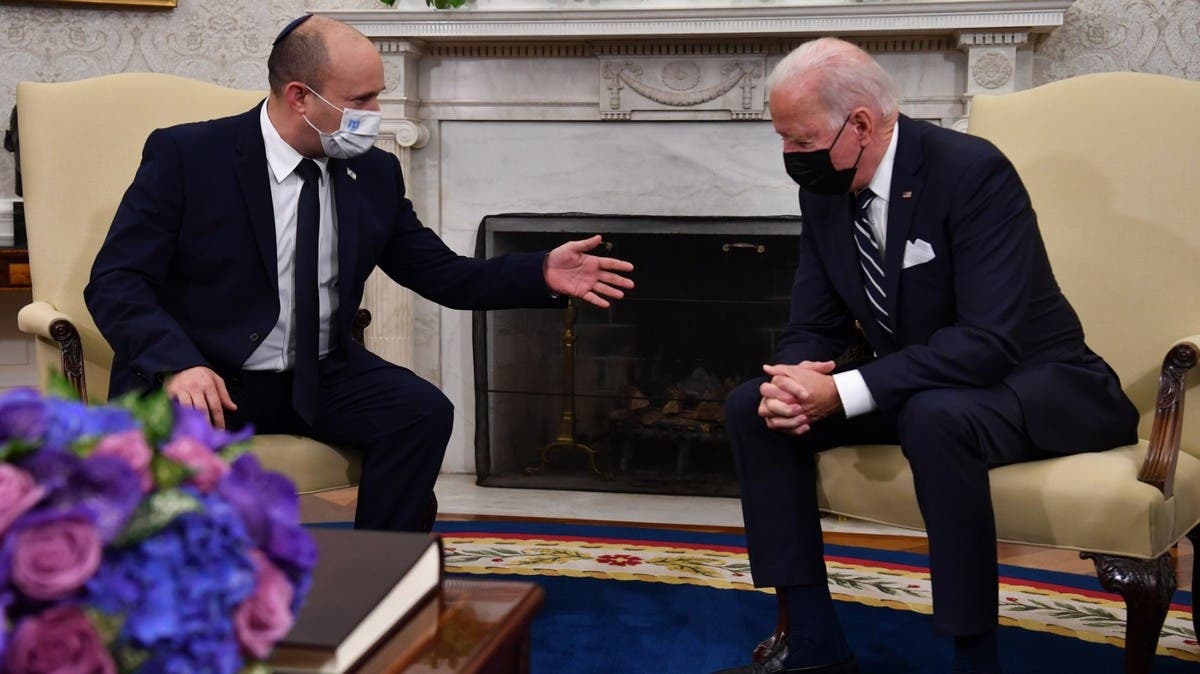US and Israeli defense chiefs are expected on Thursday to discuss possible military exercises that would prepare for a worst-case scenario to destroy Iran's nuclear facilities should diplomacy fail and if their nations' leaders request it, a senior US official told Reuters.
The scheduled US talks with visiting Israeli Defense Minister Benny Gantz follow an Oct. 25 briefing by Pentagon leaders to White House national security adviser Jake Sullivan on the full set of military options available to ensure that Iran would not be able to produce a nuclear weapon, the official said on Wednesday, speaking on condition of anonymity. Iran denies seeking nuclear weapons, saying it wants to master nuclear technology for peaceful purposes.
The US-Israeli preparations, which have not been previously reported, underscore Western concern about difficult nuclear talks with Iran that President Joe Biden had hoped would revive a 2015 nuclear deal abandoned by his predecessor Donald Trump.
For the latest headlines, follow our Google News channel online or via the app.
But US and European officials have voiced dismay after talks last week at sweeping demands by Iran's new, hardline government, heightening suspicions in the West that Iran is playing for time while advancing its nuclear program.
The US official declined to offer details on the potential military exercises.
“We're in this pickle because Iran's nuclear program is advancing to a point beyond which it has any conventional rationale,” the official said, while still voicing hope for discussions.
The European Union official chairing the talks has said they will resume on Thursday, and the US special envoy for Iran plans to join them over the weekend.
The International Atomic Energy Agency (IAEA) said last week that Iran had started the process of enriching uranium to up to 20 percent purity with one cascade, or cluster, of 166 advanced IR-6 machines at its Fordow plant, which dug into a mountain, making harder to attack.
The 2015 agreement gave Iran sanctions relief but imposed strict limits on its uranium enrichment activities, extending the time it would need to produce enough fissile material for a nuclear weapon, if it chose to, to at least a year from around two to three months. Most nuclear experts say that period is now considerably shorter.
Underlining how badly eroded the deal is, that pact does not allow Iran to enrich uranium at Fordow at all, let alone with advanced centrifuges.
Compromised
With the deal's nuclear benefits now badly compromised, some Western officials say there is little time left before the foundation of the deal is damaged beyond repair.
Such drills by the United States and Israel could address calls by Dennis Ross, a former senior US official and Middle East expert, and others to openly signal to Tehran that the United States and Israel are still serious about preventing it from obtaining a nuclear weapon.
“Biden needs to disabuse Iran of the notion that Washington will not act militarily and will stop Israel from doing so,” Ross wrote last month.
Ross even suggested the United States should perhaps signal a willingness to give the Israeli's the US military's bunker-busting Massive Ordnance Penetrator, a 30,000-pound bomb.
Asked about such remarks about deterrence, the senior US official said: “When President Biden says Iran will never get a nuclear weapon, I mean, he means it.”
Central Intelligence Agency Director Bill Burns said on Monday that the CIA does not believe Iran's supreme leader has decided to take steps to weaponize a nuclear device but noted advances in its ability to enrich uranium, one pathway to the fissile material for a bomb.
Burns cautioned that, even if Iran decided to go ahead, it would still require a lot of work to weaponize that fissile material before attaching a nuclear weapon to a missile or other delivery system.
“But they're further along in their mastery of the nuclear fuel cycle and that's the kind of knowledge that is very difficult to sanction away or make disappear, as well,” he said.
US officials have also long worried about America's ability to detect and destroy dispersed components of Iran's nuclear weaponization program once enough fissile material for a bomb were produced.
Read more:
As nuclear talks resume, Israel PM says worried US is readying to lift Iran sanctions
Israel resumes practicing for potential military strikes on Iran’s nuclear sites
Israel’s IDF Chief: We have plans in place for when we decide to attack Iran

 World3 years ago
World3 years ago
 World2 years ago
World2 years ago
 Entertainment7 years ago
Entertainment7 years ago
 World7 years ago
World7 years ago
 Entertainment7 years ago
Entertainment7 years ago






